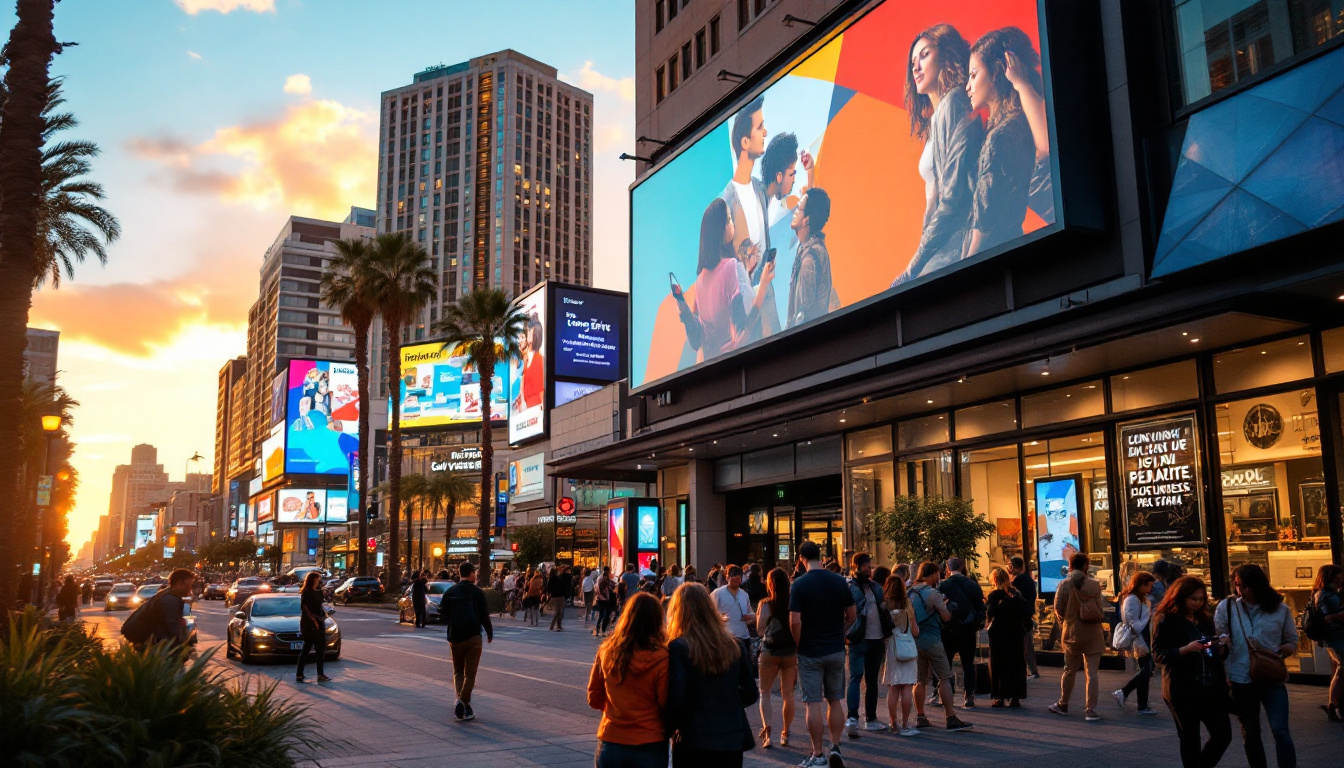Best Practices for Running Geo-Targeted PPC Ads in San Diego, CA

Best Practices for Running Geo-Targeted PPC Ads in San Diego, CA
Geo-targeted pay-per-click (PPC) advertising can significantly enhance the effectiveness of your marketing campaigns, especially in a vibrant city like San Diego, CA. By focusing on specific geographic locations, businesses can tailor their advertisements to meet the needs and interests of local consumers. Understanding the local market and employing effective strategies can lead to increased engagement and higher conversion rates.

This article will explore key practices for optimizing geo-targeted PPC ads, including strategies for targeting, tips for ad creation, and insights into analyzing performance. By utilizing these best practices, advertisers can better connect with their audiences in San Diego.
The benefits of geo-targeting for San Diego, CA advertisers
Geo-targeting offers numerous advantages for advertisers in San Diego. First and foremost, it allows businesses to concentrate their marketing budgets on specific areas where they are likely to gain the highest returns. For example, catering to neighborhoods such as La Jolla or Hillcrest can result in better conversion rates as ads are shown to consumers in close proximity to your services.
Additionally, geo-targeting can enhance relevance. By showcasing ads that resonate with local culture, events, and attractions, businesses can significantly increase engagement. For instance, a restaurant may feature ads promoting a special seafood dish pertinent to San Diego’s coastal environment. This not only captures the attention of locals but also appeals to tourists who are eager to experience the unique culinary offerings of the area.
Furthermore, it offers data-driven insights into local consumer behavior. By analyzing which areas generate the most clicks or conversions, businesses can refine their strategies over time, improving the effectiveness of their campaigns and ensuring they resonate with the local audience. Understanding peak times for specific neighborhoods can also help in scheduling ads to maximize visibility, ensuring that your message reaches potential customers when they are most likely to engage.
How to set up location targeting in Google Ads
Setting up location targeting in Google Ads is a straightforward process that can make a significant impact on your PPC campaigns. Begin by logging into your Google Ads account and selecting the campaign you wish to edit. Navigate to the 'Settings' section, and you will find the 'Locations' option.
You can choose to target specific areas by entering cities, regions, or even a radius around a physical address in San Diego. Google provides the option to include or exclude certain locations, allowing for precise targeting. For example, if your business caters primarily to downtown San Diego, you may want to exclude outer suburbs to focus your budget on areas where your target audience resides.
After entering the desired locations, consider adjusting your ad bids. Google Ads allows businesses to modify bids based on geographic performance, enabling you to allocate more budget to high-performing regions, thus enhancing ROI. Additionally, leveraging location extensions can provide potential customers with valuable information, such as your business address and phone number, directly in the ad, further increasing the chances of engagement.
Moreover, keep in mind the importance of local language and dialect in your ad copy. San Diego has a diverse population, and incorporating local slang or references can make your ads feel more relatable and engaging. Tailoring your messaging to reflect the unique characteristics of different neighborhoods can also help in establishing a connection with your audience, making them more likely to respond positively to your ads.
Tips for refining your local PPC strategy
To ensure your geo-targeted PPC campaigns are effective, it’s crucial to regularly refine your local strategies. Here are some tips to assist with this process:
- Utilize local keywords: Research and implement keywords that are popular among San Diego residents. This can include local landmarks, events, and slang.
- Test ad variations: Create multiple versions of your ads to see which performs best. Experiment with headlines, descriptions, and calls to action.
- Monitor performance metrics: Keep a close eye on metrics such as CTR (click-through rate) and conversion rates to gauge the effectiveness of your ads.
- Engage with local events: Consider aligning your PPC efforts with local events, such as community fairs or sports games, to increase relevance.
- Leverage ad extensions: Use location and call extensions to enhance your ads. This tactic not only improves visibility but also provides potential customers with quick contact options.
By implementing these strategies, businesses can enhance their local presence and drive more impactful results from their PPC campaigns. Additionally, it’s important to stay updated on local trends and community interests. For instance, seasonal changes can influence consumer behavior, so adjusting your campaigns to reflect these shifts can yield better engagement. Moreover, consider collaborating with local influencers who resonate with your target audience; their endorsement can significantly amplify your reach and credibility within the community.
Tools for analyzing local market performance
Various tools are available to help advertisers analyze local market performance effectively. Google Analytics is one of the most comprehensive options, providing insights into audience demographics, behavior analytics, and conversion tracking. This tool can help businesses understand how San Diego residents interact with their site and campaigns, allowing for strategic adjustments.
In addition to Google Analytics, local SEO tools such as Moz and SEMrush can provide information on how geo-targeting affects organic search visibility. This data can complement PPC efforts by informing advertisers about local keyword performance and search trends. Furthermore, these tools can help identify gaps in the market or opportunities for niche targeting, enabling businesses to tailor their offerings to meet specific local demands.
Social media analytics on platforms like Facebook can also be invaluable. By using insights from social media campaigns that target specific San Diego demographics, advertisers can make necessary adjustments to their PPC strategies based on what resonates with their audience. Additionally, utilizing tools like Hootsuite or Buffer can streamline the process of monitoring social engagement, allowing for real-time adjustments to both social media and PPC campaigns. This holistic approach ensures that your marketing efforts are cohesive and aligned with the preferences of your local audience.
Examples of effective geo-targeted campaigns in San Diego, CA
Several companies in San Diego have executed successful geo-targeted campaigns that can serve as excellent examples. A local surf shop, for instance, targeted ads towards San Diego's coastal areas with images showcasing surfboards and beach apparel that resonate with the active lifestyle of local consumers. By leveraging social media platforms popular among surfers and beachgoers, the shop was able to create a buzz around new product launches and seasonal sales, effectively driving foot traffic to their store. Additionally, they partnered with local influencers who shared their experiences with the brand, further enhancing their reach and credibility within the community.

Another example is a healthcare provider that ran PPC ads promoting free consultations for residents in specific neighborhoods. This ad featured geo-specific messaging, which significantly increased appointment bookings from targeted communities. The healthcare provider also utilized remarketing strategies to follow up with users who had shown interest but hadn’t booked an appointment. By sending personalized reminders and additional information about their services, they successfully converted hesitant prospects into loyal patients, showcasing the power of targeted follow-ups in geo-targeted campaigns.
A boutique hotel near Gaslamp Quarter utilized geo-targeting to offer exclusive deals to residents within a 10-mile radius, which resulted in a spike in weekend bookings. They crafted enticing packages that included complimentary breakfast and late check-out options, appealing to locals looking for a quick getaway. The hotel also engaged with nearby businesses to create partnerships that offered guests discounts at local restaurants and attractions, enriching the overall experience and encouraging repeat visits. This collaborative approach not only benefited the hotel but also fostered a sense of community among local businesses.
These examples exemplify how geo-targeting can provide tailored experiences for consumers, ultimately improving business outcomes in San Diego's competitive landscape. By understanding the unique preferences and behaviors of their target audience, these businesses have effectively harnessed the power of location-based marketing to create meaningful connections and drive engagement, setting a precedent for future campaigns in the area.

As a Google Ads expert, I bring proven expertise in optimizing advertising campaigns to maximize ROI.
I specialize in sharing advanced strategies and targeted tips to refine Google Ads campaign management.
Committed to staying ahead of the latest trends and algorithms, I ensure that my clients receive cutting-edge solutions.
My passion for digital marketing and my ability to interpret data for strategic insights enable me to offer high-level consulting that aims to exceed expectations.